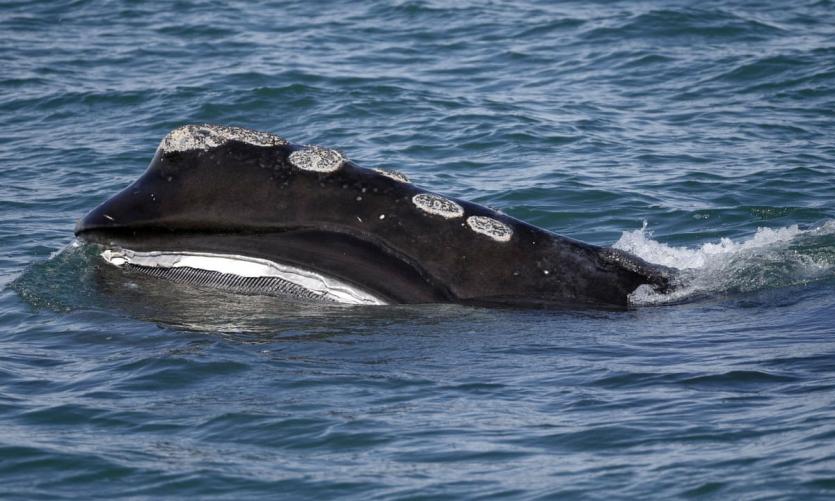Right whales’ habit of feeding leisurely at the surface made them ideal for hunting and now leaves them vulnerable to ship strikes and entanglement in nets. Photo:AP
Atlantic right whales are on the verge of extinction by humanity’s hand
By Patryk Krych | The World Daily | NOVEMBER 1st 2020
The Atlantic right whales are coming towards the verge of extinction much faster than scientists had predicted they would, with only a little over 350 of the species still left alive. Experts fear the species could disappear in just 10-20 years.
This tragedy is thought to be primarily human-caused and is having clear declining effects. Last year, at least 409 of the whale species were officially logged. This has fallen to the present 356, a drop of 42 whales according to the North Atlantic Right Whale Consortium. The leading cause of these drastic deaths is usually entanglement in human-made fishing equipment.
“The numbers have been this low before,” said Philip Hamilton, a researcher at the Anderson Cabot Centre for Ocean Life. “But we have to stop killing them – we’re killing them at an alarming rate.”
Hamilton confirmed that the whale numbers had dropped to this sort of state before in the past and managed to rebound, but the process to help them do so will by no means be an easy one and would require a careful approach.
Only 70 breeding females remain among the whales. Whales carry their young for a long time, and even then would need to stay with them for longer in order to protect them from larger predators – thus, natural reproduction to raise the species’ numbers takes a long while. Scientists predict, however, that the breeding females could die out in 10-20 years and therefore mark an end to the species with no way to breed.
“It’s not just numbers. These are individuals that we’ve seen grow up as calves,” said Hamilton. “To see them turning up dead or even worse, entangled in ropes where it takes a year to slowly die, is just gut-wrenching.”
The Atlantic right whale is at present one of the largest aquatic mammals alive, and can weigh up to 70,000 kilograms (77 tons). The cause of their endangerment was investigated mainly by the Smithsonian, who found that entanglement with fishing equipment was only part of the concern – a large problem was also their constant collision with boats which may often result in death or severe injury.
“The population is small enough that we literally know almost every one of them,” Hamilton added. “But we don’t know how they find their food. We don’t know how they navigate. They do some really interesting vocalizations that we don’t know … It’s just this exciting combination of so much knowledge and a tremendous amount of mystery.”
The Canadian government has had an active response to this need to help conserve the species and over the years have implemented laws that require certain ships to monitor and limit their speeds under a certain level. Commercial fishing spots where the whales are often seen have also been closed off. According to experts and the data of dropping whale numbers, this may not be enough to save the whales.






